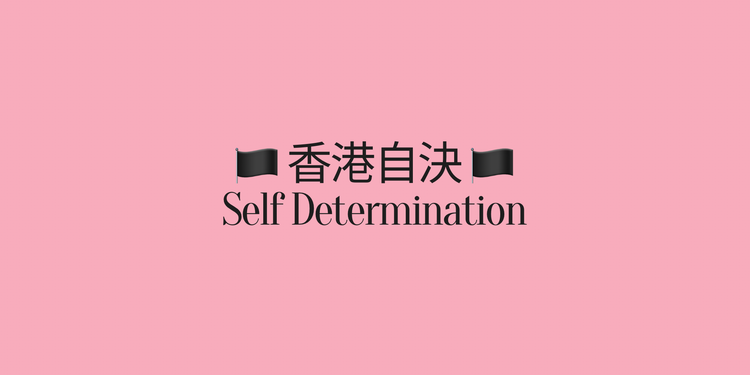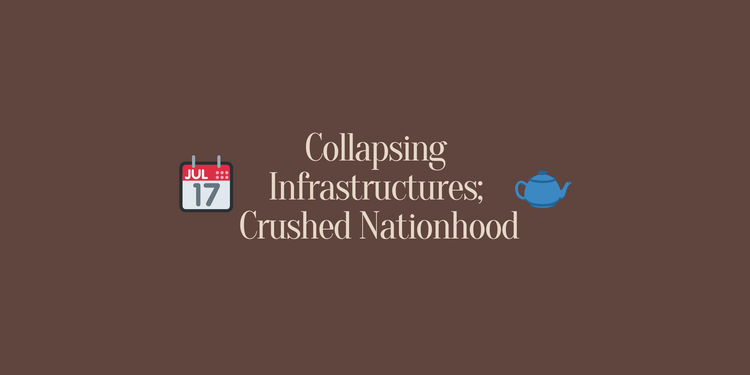✍🏼 One-China story is a fantasy of the Chinese authoritarian regime

Over the years, the Chinese Communist Party’s (CCP) authoritarian regime has carefully crafted a fairy tale: One-China. This fictitious narrative has been created through the misrepresentation of the country (People’s Republic of China — PRC), the people, the culture and the ruling party (CCP) as one.
Outside of East Asia’s geopolitical context, the One-China story is faithfully parroted by politicians, journalists, and businesses. Our very own leaders refused to name Taiwan when thanking the international community for mask donations; and a major Canadian paper published an op-ed suggesting that Hong Kong is undeserving of democracy. More than ever before, Beijing is using its deep pockets to normalize the One-China narrative on the international stage, further suppressing conversations and discussions of the CCP’s wrongdoings.
Chinese historians will tell you about a diverse China, once ruled by people of diverse ethnicities throughout the different dynasties. And yet, PRC is represented as if it were a homogenous Han country. Our rich and diverse Chinese heritage is reduced to monotony.
The CCP’s eradication of differences within China’s borders is not only ethnocultural, but also sociopolitical. The active suppression of dissidents and the manipulation of international discourse is how China enforces the One-China narrative. At the hands of the CCP, Tibetans’, Mongolians’, and Uyghurs’ religions, cultures, and languages are being systematically obliterated. East Turkestan, the “cradle of Uyghur culture, history, and civilization,” was rebranded as Xinjiang, and Uyghur women are forced into inter-racial marriages. Inner Mongolia ‘has become China’s model of assimilation’. And “ethnic unity” laws mandate non-Tibetans to occupy positions in all levels of government, schools, businesses, religious centers, and the military to further sinicize Tibet. China’s colonization is violently erasing diverse identities.
Not only is the One-China fantasy a result of violent colonization, but it is also a story that holds control over the narrative about China’s past and present. The fact is that a large swath of the rich Chinese heritage that exists in other ‘Chinese’ communities was destroyed during the Cultural Revolution.
This ‘Chinese’ identity is grievously weaponized under the One-China narrative, which the CCP prescribed to maintain control over people living within occupied territories. While Taiwan has been a victim of the ‘Chinese’ identity, CCP has nullified dual citizenship, to make ‘Chinese nationals’ hostages to the regime.
Taiwan, formally known as the Republic of China, is an independent democratic island nation. The CCP has been meddling in the business sector and the international community, to deny Taiwan’s independence and reinforce the CCP’s stance on One-China. But interference in Taiwan is only the tip of the iceberg.
By successfully weaponizing identity politics to maintain control of the One-China narrative, the CCP is able to masterfully dodge international accountability, suppress voices, and rewrite international orders in their favour.
Take for example Gui Minhai, a Swedish citizen, who was abducted twice — first in Thailand, then on a train in front of Swedish officials. Chinese officials reinstated Gui’s Chinese citizenship during his secret detention, and Swedish officials were denied access to Gui. In February 2020, Gui was sentenced to 10 years in prison.
Gui’s case is only one example of many. With the imminent implementation of the National Security Law in Hong Kong, Chinese authorities will be empowered to further weaponize the One-China narrative.
The CCP has been creating a false dichotomy between China and the rest of the world. Despite the international community’s efforts to call out the CCP’s human rights atrocities and violation of international agreements, Beijing is rejecting all efforts to hold them accountable. Any intervention is deemed as an attack on PRC’s sovereignty, and it aligns with Beijing’s nationalistic propaganda on the so-called “Cold War” with western democracies.
Whether we want to or not, Beijing is already engaging in a Cold War with western societies and using the One-China narrative as both its weapon of choice and its first line of defence. We must not buy into this fabrication any longer. The time is now, to see past the CCP’s fairytale of a homogenous people living in a monogamous state, to collectively dismantle the One-China story, and to end Beijing’s fantasy.



Comments ()